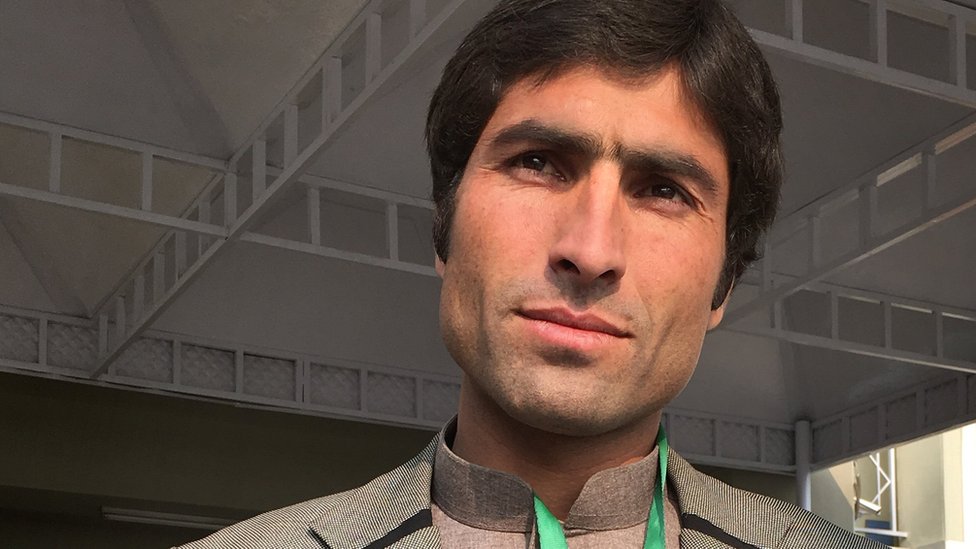
In 2012, a blurry mobile phone video emerged from Pakistan’s remote Kohistan district.
It showed five young women—Bazeegha, Sareen Jan, Begum Jan, Amina, and Shaheen—clapping and laughing in bright orange headscarves as a young man danced nearby.
For most, it would be an innocent moment of celebration, perhaps tied to a wedding.
But in the rigidly patriarchal and tribal society of Kohistan, it was seen as a disgrace.
This simple act of joy led to a horrifying chain of events, ultimately claiming not just the women’s lives but also that of their advocate, Afzal Kohistani.
The question remains: how long will honor outweigh humanity?
The Jirga’s Sentence
The video triggered outrage among tribal elders, who declared it a dishonor to their community.
A jirga (tribal council) was convened, and its verdict was harsh: the five women in the video and the young man seen dancing were sentenced to death for violating tribal norms that prohibit intermingling of genders.
While the young man fled the area, the women were confined to their homes.
Over the following weeks, they endured brutal torture, including being scalded with boiling water and hot coals.
Eventually, they were killed and buried in the remote Kohistan hills, their families erasing all traces of their existence.
The Cover-Up and Deceit
The case drew national and international attention, prompting Pakistan’s Supreme Court to intervene.
Investigators were dispatched to Kohistan to verify the claims.
But the families and local leaders denied the killings, presenting five impostors as the supposedly alive victims.
The deceit went so far as to disfigure one woman’s thumbprint to match the official identity card of one of the murdered girls.
Despite the cover-up, evidence began to surface.
Human rights activists, journalists, and investigators uncovered discrepancies, pointing to the women’s tragic fate.
The documentary Unveiled: The Kohistan Video Scandal captures these harrowing details, highlighting the deeply entrenched culture of impunity and silence in the region.
Afzal Kohistani: A Lone Voice for Justice
Amid this chaos, one man stood up for the murdered women: Afzal Kohistani, the brother of the young man in the video.
He relentlessly pursued justice, exposing the jirga’s brutality and the murders of the five women.
In a society where dissent often comes with dire consequences, Afzal became the voice for those who could no longer speak.
His courage, however, came at a great cost.
For years, he faced threats and intimidation from powerful tribal leaders and relatives of the women.
Undeterred, he continued his fight, bringing the case to the nation’s attention.
Tragically, Afzal’s advocacy cost him his life.
In March 2019, he was shot dead in Abbottabad in a targeted attack.
His murder underscored the extreme dangers faced by those who challenge entrenched tribal customs.
His death sent shockwaves across Pakistan, reigniting calls for justice and protection for activists.

A Delayed Justice
Seven years after the murders, in 2019, a breakthrough finally came.
Three men were convicted and sentenced to life imprisonment for their roles in the killings.
Yet, many activists argue that this justice was incomplete, as the primary perpetrators of the jirga’s orders likely remain free.
The systemic issues that allowed the murders and cover-up to occur still persist.
Honor Killings: A Broader Crisis
The Kohistan case is not an isolated incident.
Hundreds of women are killed in Pakistan each year in the name of “honor,” often with the complicity of local communities and even families.
These crimes are rarely reported, and even fewer lead to convictions.
The documentary Unveiled: The Kohistan Video Scandal serves as a stark reminder of the brutality of honor-based violence.
It paints a vivid picture of the harsh terrain and even harsher societal norms that govern life in Kohistan.
Interviews with activists and locals reveal the deep-seated resistance to change and the immense challenges faced by those seeking justice.





